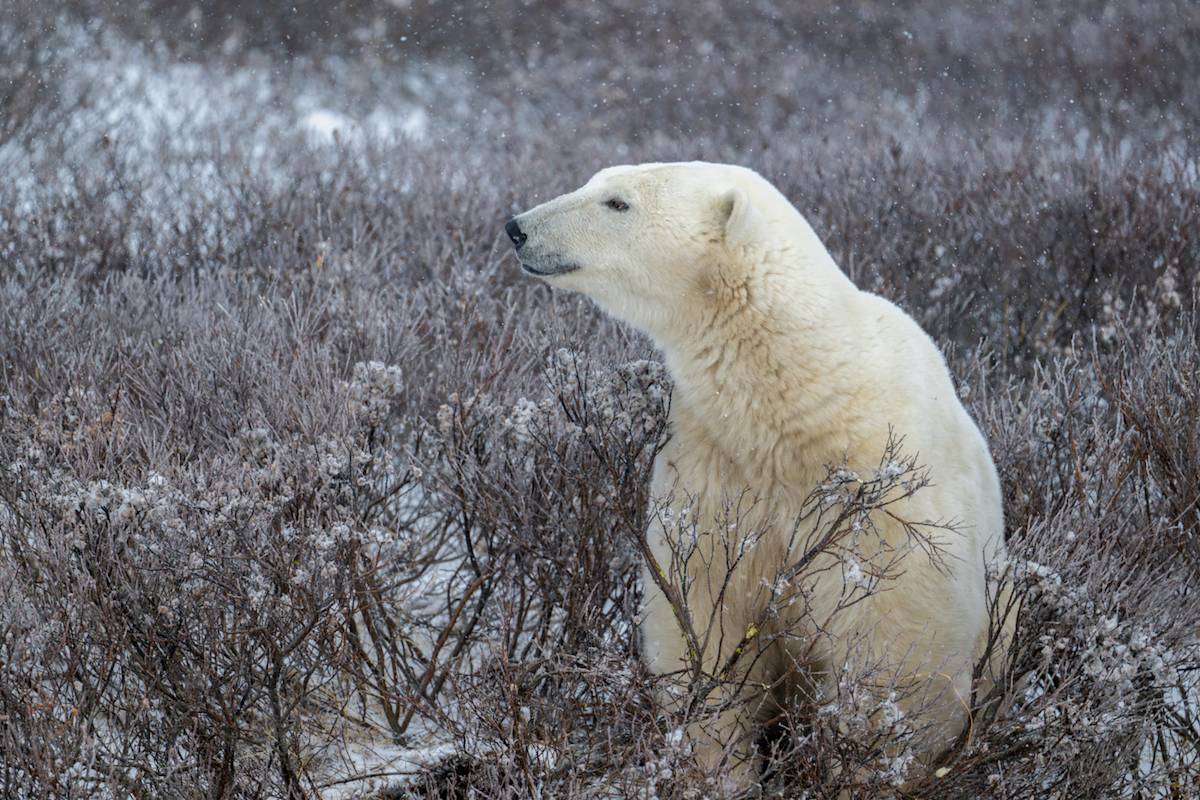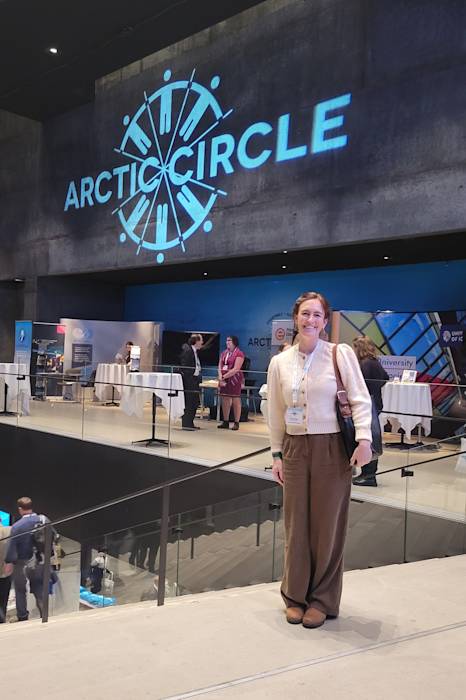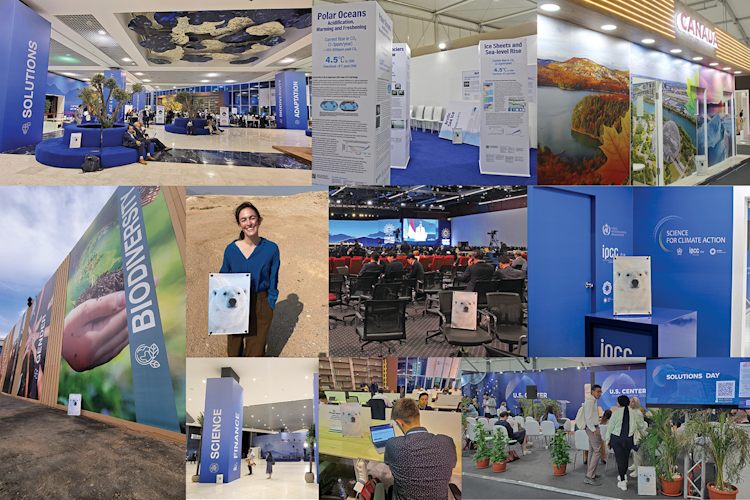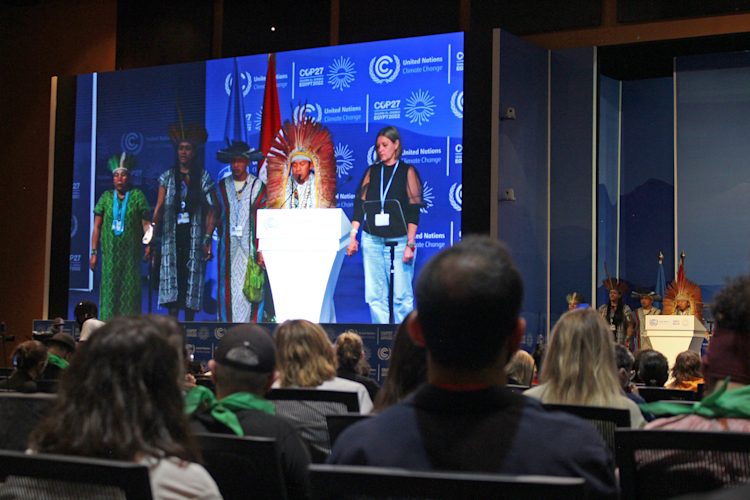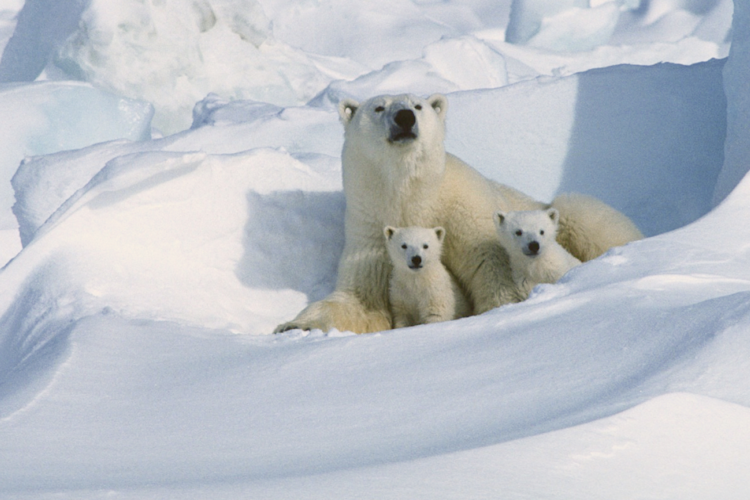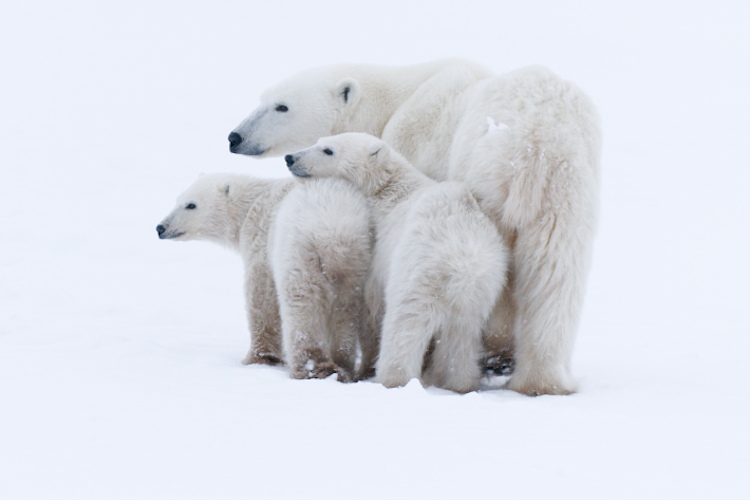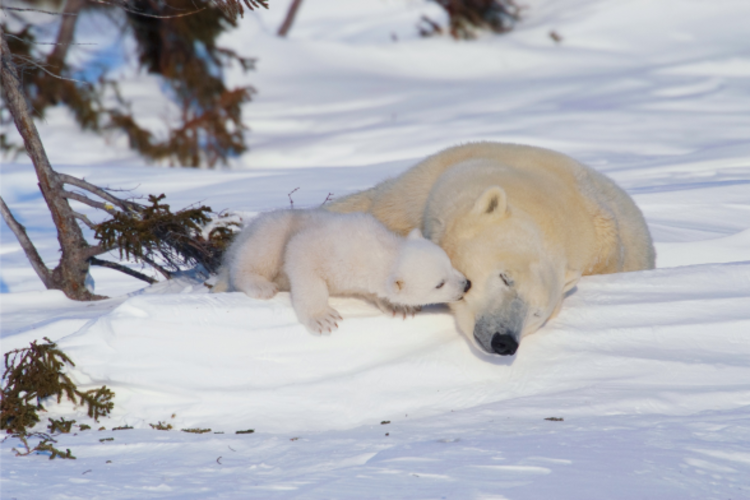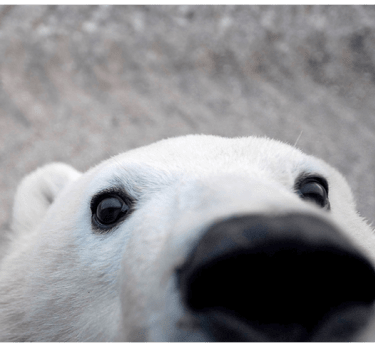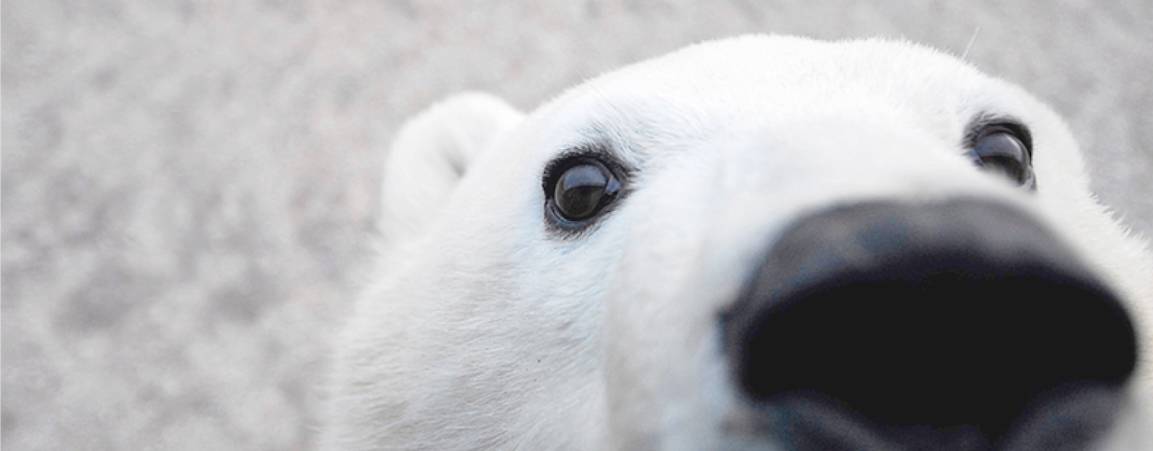The 28th United Nations Climate Change Conference (COP28) opens today and will run through December 12, the latest step in an ongoing journey to significantly reduce the international community’s fossil fuel emissions. Polar Bears International will be following proceedings remotely; last year, PBI attended COP27 in Egypt, and also took part for several years before that, part of an effort to expand our work beyond research, education, and conservation and into the policy sphere.
Here, Emily Ringer, Polar Bears International’s director of policy and advocacy, discusses PBI’s increased involvement in such international gatherings and how they ultimately reinforce the importance of individual and grassroots action.
Q: It seems that, outside of such meetings as the Polar Bear Range States and the Polar Bear Specialist Group, where PBI would be expected to have some kind of presence, attending these meetings is a fairly new phenomenon for Polar Bears International. Is that so, and if so, what is the thinking behind it?
We’ve always appreciated the role that policy and advocacy plays in polar bear conservation, but it wasn't necessarily one of our key pillars as we were very focused on research and education. But as those pieces have become well established, we wanted to invest more in these meetings because they are places where people have important conversations about all the cross-sectional issues that impact the Arctic, of which polar bears are just one. And we wanted to make sure that we are a part of those conversations and that we are building relationships and opportunities for collaboration in the future.
We try to be very thoughtful about which meetings we attend, because of course there is a climate impact from traveling to these meetings. Zoom is amazing, and we do as much work virtually as we can, but it's not the same as sitting across from somebody and having a conversation over coffee. I think about relationships with people I've emailed with for years that have just absolutely skyrocketed because I got to meet them in person, and now we feel we understand and are able to support each other's work more. So sometimes, there's a lot of value in physically being there.
